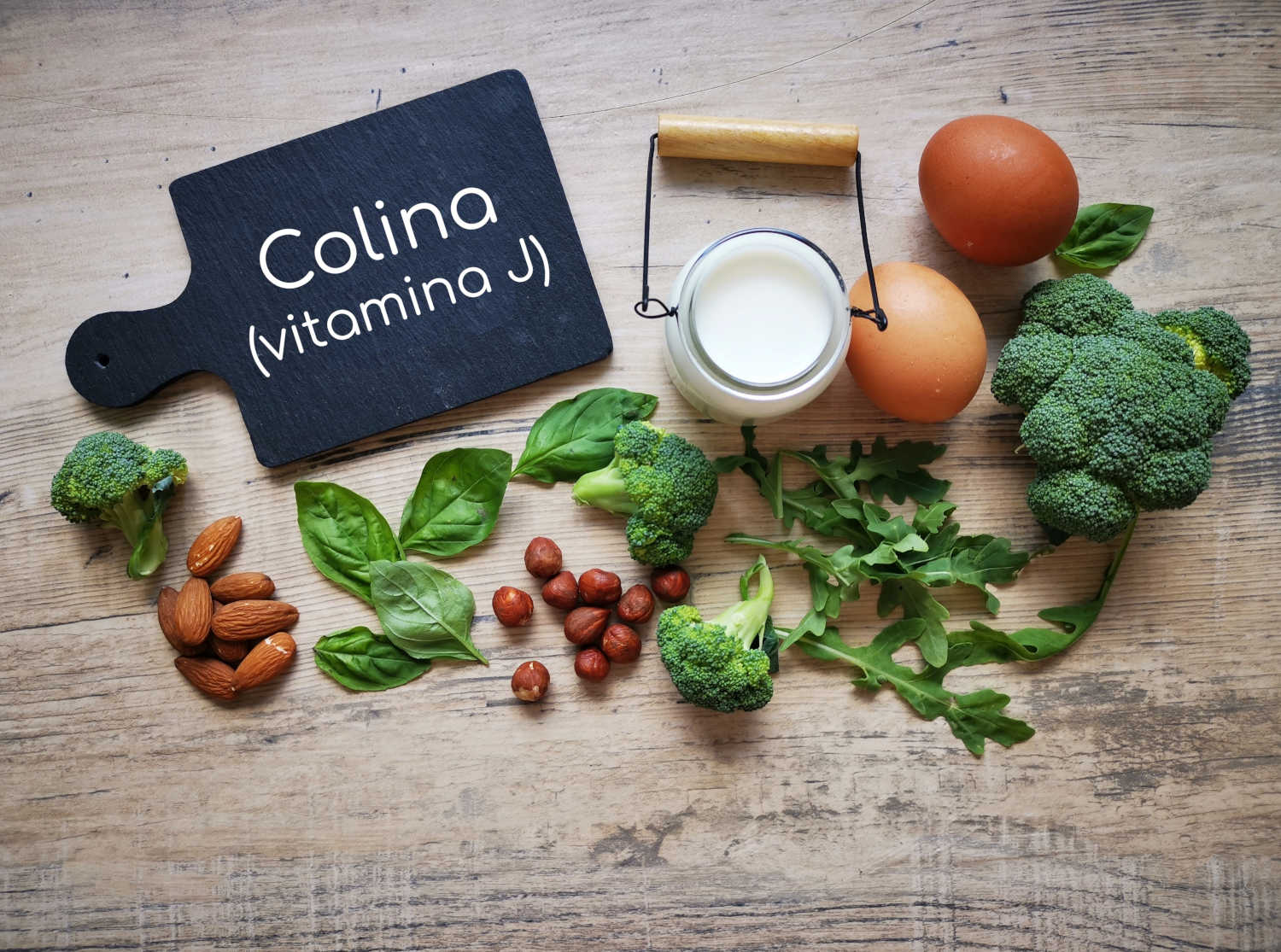Choline is an essential nutrient that plays a crucial role in maintaining the optimal functioning of the body. Discovered relatively recently in 1998, choline is often associated with the B-vitamin complex, although it is not actually a vitamin. It is necessary for brain development, nervous system function, and lipid metabolism.
Here’s everything you need to know about choline!
Properties of choline
- Chemical structure: Choline is a water-soluble organic compound that contributes to the formation of acetylcholine – an important neurotransmitter for memory, mood, and muscle movements.
- Structural role: It is an essential component of cell membranes, involved in the synthesis of phospholipids like phosphatidylcholine.
- Fat metabolism: Choline aids in the transport of fats from the liver, preventing excessive lipid accumulation (fatty liver disease).
Health benefits of choline
- Brain health: Choline is vital for cognitive function and may help prevent memory decline associated with aging or diseases like Alzheimer’s.
- Fetal development: Choline is crucial during pregnancy for the proper development of the brain and spinal cord in the fetus.
- Liver health: It helps prevent non-alcoholic fatty liver disease by metabolizing fats.
- Reduces inflammation: Choline helps reduce homocysteine levels in the body, a marker associated with inflammation and cardiovascular diseases.
- Physical performance: It participates in energy production and muscle contractions, benefiting athletes.
Choline deficiency
Choline deficiency is rare but can occur under certain conditions, such as a nutrient-poor diet, pregnancy, or liver disease. Symptoms include:
- Extreme fatigue
- Memory impairment
- Fatty liver (steatosis)
- Muscle weakness
- Mood disorders
Choline excess
Although it is difficult to reach a toxic level of choline through diet alone, excessive supplement intake can cause adverse effects, including:
- Fishy body odor
- Lowered blood pressure
- Excessive sweating
- Nausea and diarrhea.
The tolerable daily intake (UL) for choline is 3.5 grams for adults.
Natural sources of choline
Choline is found in a variety of foods, and including them in your diet helps meet the daily requirement:
- Eggs: An excellent source of choline, especially in the yolk.
- Liver: Beef or chicken liver is one of the richest sources of choline.
- Meat: Chicken, turkey, and beef contain significant amounts of choline.
- Fish and seafood: Salmon, tuna, and shrimp are good sources.
- Dairy products: Milk and cheese contain moderate amounts of choline.
- Cruciferous vegetables: Broccoli, cauliflower, and cabbage are excellent plant-based sources.
- Legumes: Chickpeas, lentils, and beans have a significant choline content.
- Nuts and seeds: Walnuts, sunflower seeds, and pumpkin seeds.
Daily choline requirements
The amount of choline needed daily varies depending on age, sex, and physiological conditions:
- Children (1-8 years): 150-250 mg/day
- Adolescents (9-18 years): 375-550 mg/day
- Adults: 425 mg/day for women and 550 mg/day for men
- Pregnancy: 450 mg/day
- Breastfeeding: 550 mg/day

Choline is an essential nutrient for overall health, with significant benefits for the brain, liver, and metabolism. Make sure to include natural sources of choline in your diet to avoid deficiencies and enjoy optimal well-being.
If necessary, consult a doctor or nutritionist for proper supplementation.

